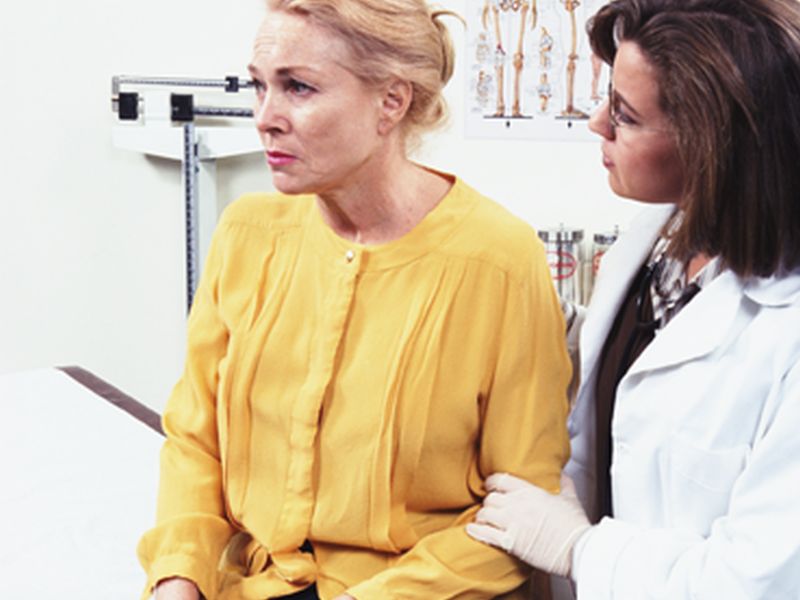
Thursday, March 3, 2016

THURSDAY, March 3, 2016 (HealthDay News) -- Many women treated for early breast cancer overestimate the odds of it spreading to another organ, and those fears can diminish their quality of life, new research suggests.
The study involved more than 1,000 women newly diagnosed with either very early breast cancer, known as DCIS (ductal carcinoma in situ), or low-risk invasive cancer (LRI). All were at low risk for what's called distant recurrence -- cancer spreading to organs throughout the body.
But more than one-third of those with DCIS and one quarter of those with low-risk invasive tumors overestimated their risk for distant recurrence, said Sarah Hawley, a professor of medicine at the University of Michigan School of Medicine.
Even women with a very favorable outlook after treatment significantly misjudged their risks, Hawley said. "They provided a risk number estimate more than double their actual risk," she said.
She found the more patients exaggerated their risk, the more they worried about recurrence, which affected their quality of life.
Doctors differentiate between local recurrence, when cancer returns to the site of the first tumor or close to it, and distant recurrence, or metastatic breast cancer, when cancer spreads to a different organ. Metastatic breast cancer is not curable and needs to be managed as a chronic disease, according to the Johns Hopkins Breast Center.
In this study, Hawley focused only on fear of distant recurrence. She considered a perceived risk of more than 10 percent for DCIS and more than 20 percent for low-risk invasive cancer as an overestimate.
Less-educated women were more likely than those with more schooling to fear the worst, she found.
Those who overestimated risk were two to three times more likely to worry about recurrence than those who did not overestimate, Hawley found.
Some of these women also had lower mental health and physical health scores, she said.
Hawley believes doctors can help patients understand their odds for wide-range spreading of cancer by using both numbers or percentages and wording such as "low" or "moderate," Hawley said. Also, women can educate themselves and ask their physicians to explain the risks in these terms, she suggested.
The study findings don't surprise Dr. Linda Bosserman, clinical assistant professor of medicine at the City of Hope Medical Group, in Rancho Cucamonga, Calif.
"I believe these findings are consistent with other studies which consistently show patients overestimate the risk of cancer recurrence," said Bosserman, who wasn't involved in the study.
Hawley and Bosserman agreed that doctors should strive to be specific with each patient about individual risk. "It can be a hard discussion," Bosserman said.
But knowing that the recurrence risk with early breast cancer is often low "can be a relief and often also helps them [patients] better weigh the risks and benefits" of therapies, she said.
Some patients fear even slight risk and choose "every possible therapy" that might reduce their risks. Others, when given appropriate information, are able to weigh the pros and cons of each course of action, Bosserman said.
Hawley presented the findings recently at an American Society of Clinical Oncology meeting in Phoenix. Research presented at medical meetings is usually considered preliminary until published in a peer-reviewed journal.
SOURCES: Sarah Hawley, Ph.D., professor of medicine, University of Michigan School of Medicine, Ann Arbor; Linda Bosserman, M.D., clinical assistant professor, City of Hope Medical Group, Rancho Cucamonga, Calif.; presentation, American Society of Clinical Oncology (ASCO) meeting, Feb. 27, 2016, Phoenix
HealthDay
Copyright (c) 2016 HealthDay. All rights reserved.
- More Health News on:
- Breast Cancer
- Health Literacy





























.png)











No hay comentarios:
Publicar un comentario